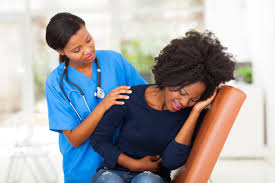P
PressRoom
Guest
No doubt, during the holidays, we will entertain guests at our houses, or be entertained (as the case may be). While we bask in the joy of wining and dining, it is safe to avoid Food poisoning – which is caused by eating contaminated food. Here are some ways to avoid food poisoning.

1. Shop With Care: Food safety begins at the grocery store, so make sure to shop wisely. Check the use-by dates on all products and use your judgement to decide if foods have been stored at the correct temperatures.
2. Separate Food Items: Keep meat, poultry, seafood, and eggs separate from all other foods in your grocery bags, in the refrigerator, and while prepping. Inadvertent splashing of juices can occur, contaminating other foods.
3. Keep Hot Food Hot, and Cold Food Cold: The bacteria that cause food poisoning multiply quickest in the ‘Danger Zone,’ which is between 40˚ and 140˚ Fahrenheit. In general, it’s best to keep hot food hot, and cold food cold.
4. Remember to Wash Your Hands: Wash your hands, kitchen surfaces, utensils, and cutting boards frequently, especially after handling or preparing uncooked food and before touching or eating other foods. Wash produce but not eggs, meat, or poultry, which can spread harmful bacteria, again, through splashing. Also, wash your hands before eating or handling food and after using the toilet, changing nappies or smoking. Keep a bottle of alcohol-based hand sanitizer with you while you travel so you can keep clean even when you don’t have access to soap and water.
5. Beware of Street Vendors: While it can be tempting to buy try local cuisine sold at market stalls or by street vendors, you should do so with caution. Most Street vendors do not operate under standard hygiene standards as restaurants.
6. Peel Your Own Fruit: Fruit and vegetables that cannot be peeled, like berries, grapes and salad, present a greater risk of food poisoning. This is because it’s likely that they’ve been washed using the local tap water. Opt for fruits you can peel yourself like bananas and oranges to reduce this risk.
7. Be Vigilant About Cleanliness: When deciding where to eat, pick busy restaurants with a reputation for good hygiene, as these will usually serve fresh and safe food. Always keep an eye out for poor standards of cleanliness; don’t eat somewhere if tables are not thoroughly clean or cutlery is dirty. Remember that just because a restaurant is expensive, doesn’t mean it’s clean.
8. Trust Yourself: While there are steps you can take to be careful when eating on holiday, the best thing you can do is to listen to your body and trust your gut. Eat more slowly than usual; you’ll soon be able to tell if the food doesn’t agree with you.

1. Shop With Care: Food safety begins at the grocery store, so make sure to shop wisely. Check the use-by dates on all products and use your judgement to decide if foods have been stored at the correct temperatures.
2. Separate Food Items: Keep meat, poultry, seafood, and eggs separate from all other foods in your grocery bags, in the refrigerator, and while prepping. Inadvertent splashing of juices can occur, contaminating other foods.
3. Keep Hot Food Hot, and Cold Food Cold: The bacteria that cause food poisoning multiply quickest in the ‘Danger Zone,’ which is between 40˚ and 140˚ Fahrenheit. In general, it’s best to keep hot food hot, and cold food cold.
4. Remember to Wash Your Hands: Wash your hands, kitchen surfaces, utensils, and cutting boards frequently, especially after handling or preparing uncooked food and before touching or eating other foods. Wash produce but not eggs, meat, or poultry, which can spread harmful bacteria, again, through splashing. Also, wash your hands before eating or handling food and after using the toilet, changing nappies or smoking. Keep a bottle of alcohol-based hand sanitizer with you while you travel so you can keep clean even when you don’t have access to soap and water.
5. Beware of Street Vendors: While it can be tempting to buy try local cuisine sold at market stalls or by street vendors, you should do so with caution. Most Street vendors do not operate under standard hygiene standards as restaurants.
6. Peel Your Own Fruit: Fruit and vegetables that cannot be peeled, like berries, grapes and salad, present a greater risk of food poisoning. This is because it’s likely that they’ve been washed using the local tap water. Opt for fruits you can peel yourself like bananas and oranges to reduce this risk.
7. Be Vigilant About Cleanliness: When deciding where to eat, pick busy restaurants with a reputation for good hygiene, as these will usually serve fresh and safe food. Always keep an eye out for poor standards of cleanliness; don’t eat somewhere if tables are not thoroughly clean or cutlery is dirty. Remember that just because a restaurant is expensive, doesn’t mean it’s clean.
8. Trust Yourself: While there are steps you can take to be careful when eating on holiday, the best thing you can do is to listen to your body and trust your gut. Eat more slowly than usual; you’ll soon be able to tell if the food doesn’t agree with you.

